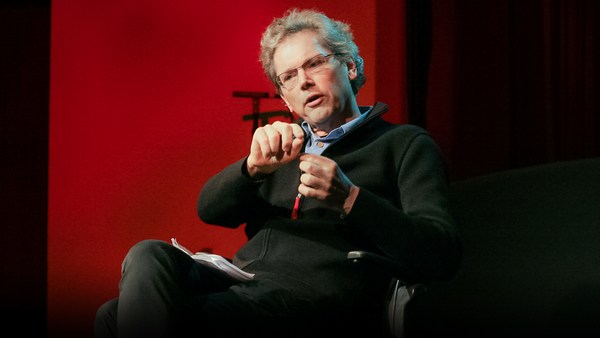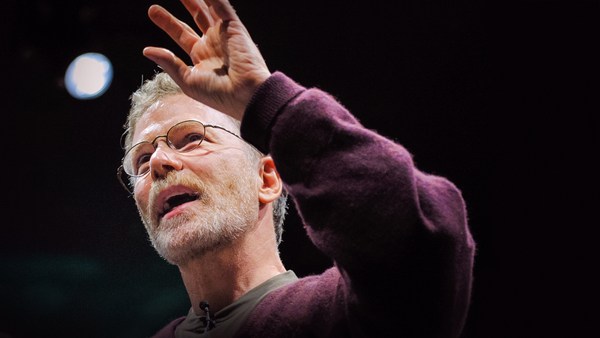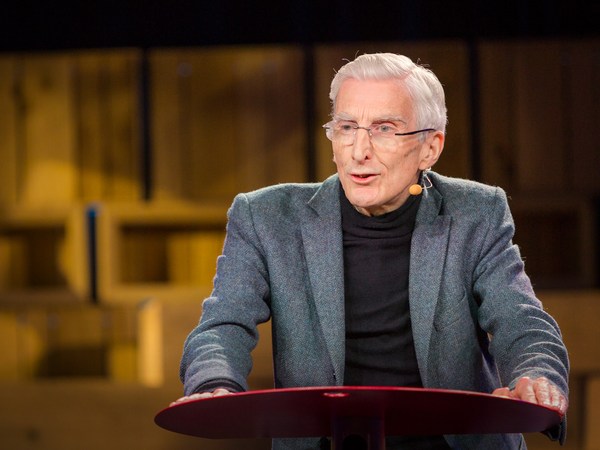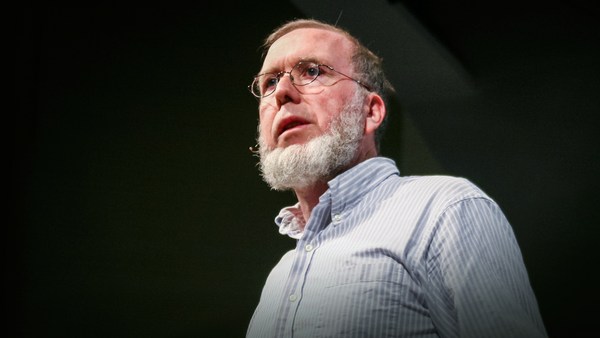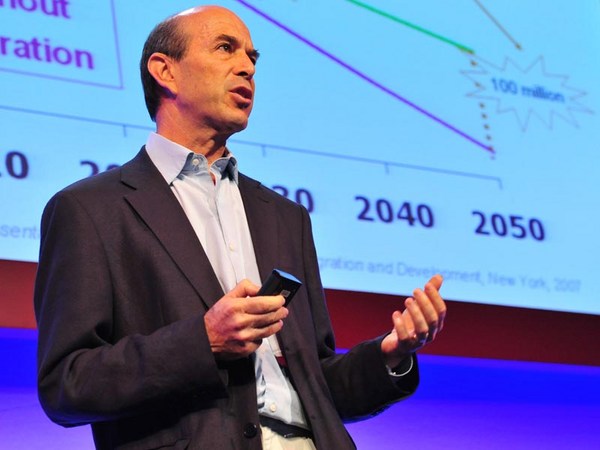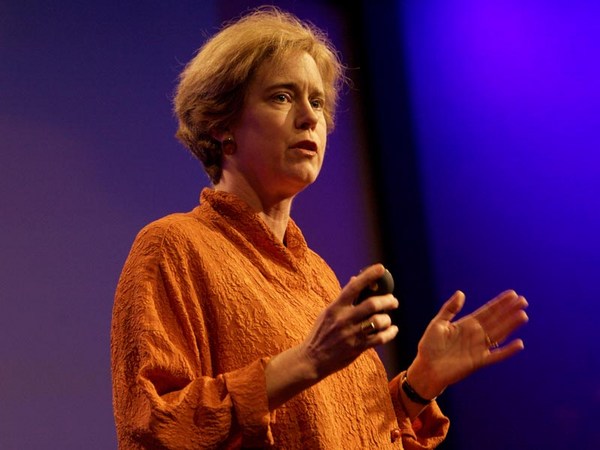These are absolutely wonderful things, right, because you can do a bunch of stuff, and one of the things they allow you to do is to record conversations. So sometimes you can expose corruption, sometimes you can catch a brilliant talk, sometimes you can do X, Y or Z, but this is a little Boston club, right, and it’s been here for a long time. And I want you to think about what it might have happened if you put a device like this and recorded conversations in this place 100 years ago? It was a very literate, a very educated community, it was a very progressive community. But you’d probably would find people in this club who were defending slavery. Anybody here thinks slavery’s OK? So why did we accept it not just sometimes here and the South, but across millennia in every civilization? How the hell do we know that this is absolutely one of the most vile things you can do, and they didn’t know it for thousands of years? And how did two thirds of your society and perhaps even people in this club, had they been recorded in the fifties or sixties, have felt gay marriage was one of the worst things you could do and was against our beliefs, our morality, our religion and were violently opposed to folks who had other sexual inclinations. And so if you had recorded those conversations on this thing, you might have, like, had your hair stand on end: “How can I be sitting in a bar With people who had these opinions ... sharing?” Now I want you to apply that exercise to yourselves. OK, so now go sit in the bar and think about some of the conversations and what’s going to happen, as we just heard, when those are recorded and played forward in 20 or 50 years. And I just want you to reflect on four topics: First topic is money, and we just heard about money, but what’s actually happened over the last three years is that you’ve doubled the number of income for the top ten billionaires, and then you’ve got 2750 people who’ve got more income than anybody on Earth. We have enough money to feed everybody. We have enough so there don’t have to be homeless. We have enough money so people can get health care. And somehow we sit in the bar down here and we have conversations and just accept that. Until about six days ago, there probably were not a lot of conversations about nuclear weapons in that bar. And somehow we think that it’s OK for - I think it’s now a total of seven people in the world to have the ability to destroy all the life on earth ... at will! And a couple of them are like violent, narcissistic billionaires who are very violent. And somehow, you know, we have our drinks, and, you know, it’s possible that in 20 years or 50 years, people will be sitting in that bar thinking, “Who were these people that thought it was OK for seven people to have the power to destroy all life on Earth?” And we can’t take that for granted. Then there's the issue of energy. So as we sit and we think about energy, we're going to have alternative energy, which people didn’t have, right? And as energy gets faster, better, cheaper, people are not going to have to burn oil, coal, or gas and they are going to judge us for having burned oil, coal, and gas. And they’re going to look in an extreme way and say, “How dare you have done that to the planet?” They’re going to suffer the consequences, but they’re going to have an alternative to look back on. And a few of you may have eaten meat in the last week, not all of you. But as you get synthetic meat, as meat becomes faster, better, cheaper, people might begin to ask, “Why the hell did you have steakhouses and kill 6 billion animals?” But they will do so from a position of having an alternative - a faster, better, cheaper, better-for-you, and better-tasting alternative, and then it becomes very easy to judge the past. And that does not justify what people did, that does not say what they did is right, but as we go through transitions in ethics in what we think is right and wrong and as these things accelerate, judge the past with a little bit more humility and forgiveness - we might have been educated in such a way that we might have said some pretty awful things in that bar 100 years ago, because our parents, our teachers, our preachers, everybody we respect may have told us it was OK. In the same way as today, we think a whole series of things are OK, which may be really, really wrong in retrospect tomorrow, especially as you get other choices. As we have these cultural debates. judge with a little bit more humility and forgiveness. Do not cancel people for one tweet. Do not destroy people’s careers because they had one sentence wrong. Do not take something that somebody said 20 years ago and think that is that person. Because if you do, we will rip each other apart as a society, we will rip each other as a country, and we will rip each other as a world. Thank you. (Applause)
